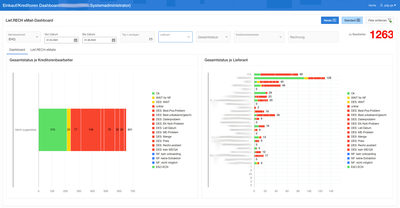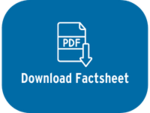Vendor Invoices Import into Oracle E-Business Suite
as SaaS or AddOn solution
Primus E-Invoice Management (PEM) extracts the vendor's data and imports the verified invoice data into the Oracle E-Business Suite. The emails can contain the invoice as an X-Invoice file (UBL 2.1) or as a ZUGFeRD file (ZUGFeRD 2.2). PEM can also retrieve supplier invoices via PEPPOL. PEM can be used either as a Software as a Service solution or as an EBS add-on.
Procedure for importing vendor invoices with PEM into Oracle EBS:

- Procedure for importing vendor invoices into the Oracle E-Business Suite with PEM (Primus E-Invoice Management):
The vendor from Germany sends the email with the X-invoice or ZuGFeRD invoice (or PDF invoice) attached to a dedicated email account.
Or the vendor uses PEPPOL to deliver his invoices. - PEM (Primus E-Invoice Management) regularly checks this email account and the PEPPOL-account (Avalara) and processes all incoming information. With the "PDF extraction" option, invoice data is extracted from the PDF attachment of "conventional" emails. The "Archiving" option is used to archive the vendor invoice emails or XML data.
- PEM provides the accounts payable clerk with a clear overview of all invoices via the PEM Cockpit. Invoices that are only received via XML are converted into a PDF by PEM for the user.
- PEM extracts the invoice data from the email attachment or converts the PEPPOL XML structures, identifies the corresponding vendor based on the Oracle E-Business Suite master data and checks whether there is a corresponding purchase order in the Oracle E-Business Suite for this vendor.
- The PEM automatically compares the invoice data with the information in the Oracle EBS (vendor address, purchase order and, if applicable, goods receipt). If the invoice refers to a closed period PEM waits and imports the invoice as soon as possible.
- With the "Approval workflow" option, the invoice is checked and approved (or rejected) by the responsible employees.
This results in three cases:
- Invoice without order:
The invoice data is imported: Invoice header and invoice items. If an item can be clearly found in the EBS via the item number in the invoice, the EBS item is referenced. If no item can be found, the item info of the invoice is transferred as text. The account assignment of the invoice in the EBS takes place via the vendor default account assignment. This can be changed by the accounts payable clerk if necessary. The vendor invoice approval workflow set up in EBS can be used as before (if the invoice has not already been approved by the PEM approval workflow) - Invoice based on a purchase order without deviations:
If the invoice data for the purchase order and, if applicable, the goods receipt match, the invoice is automatically imported into the Oracle EBS via the interface and the email (incl. attachment) or the PEPPOL information is archived on the EBS invoice data record. - Invoice based on a purchase order with deviations:
If the invoice data does not match the purchase order and the goods receipt, the employee responsible for invoice verification in Accounts Payable (or Purchasing) can be notified. With the notification, the employee receives the necessary information (e.g. "Quantity does not match the order"). The invoice is imported in any case and a credit note for an incorrect quantity or price is expected. Until this credit note arrives, the invoice is "blocked for payment“.
- Invoice without order:
The current legal regulations on e-invoicing in Germany:
On 22 March 2024, the Federal Council approved the new "Growth Opportunities Act".
This makes electronic invoicing in the B2B sector mandatory for German companies as part of the EU Directive "Value Added Tax in the Digital Age" - ViDA". The law states that companies must be ready to receive electronic invoices from 1 January 2025, while the submission of electronic invoices will initially be voluntary in 2025 and 2026 and then mandatory from 1 January 2027.
Electronic invoices are all invoices that are compatible with the "CEN format EN 16931", e.g. standards such as "X-Rechnung" or "ZUGFeRD". PDF invoices are not electronic invoices.
This means that companies in Germany must at least prepare their ERP system to receive electronic invoices from 1 January 2025.

Benefit from importing supplier invoices with Primus E-Invoice Management (PEM):
- Compliance with the legal requirement to be able to receive electronic invoices in B2B transactions from January 1, 2025.
- Emails with X-Invoice or ZUGFeRD attachments can be processed. Invoices provided by the supplier via PEPPOL can also be processed (with additional costs)
- Process automation: Content comparison, transfer to EBS and archiving of emails (incl. e-invoice) on the EBS invoice record.
Important: The necessary data is extracted from the e-invoice for 100% of the processed invoices. This eliminates the manual checking and reworking that is often necessary with scanned invoices! - No manual action is necessary if the goods receipt and the order directly match the invoice.
(Validation of the invoice before the payment run is always mandatory in EBS). - If the invoice does not refer to an EBS order, the very time-consuming entry of invoice item data is no longer necessary. Thanks to the account assignment templates for each supplier, corrections to the account assignment by Financial Accounting are rarely necessary.


